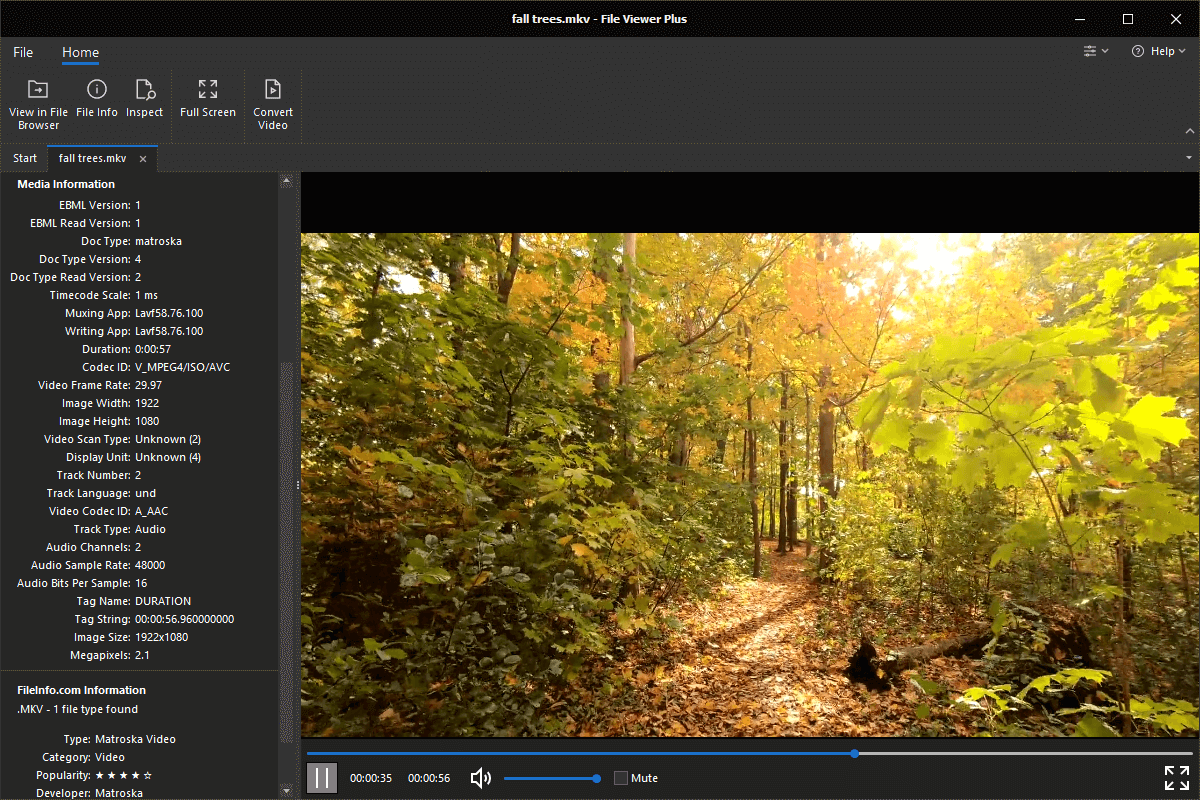What Is MKV File? The Ultimate Guide To Understanding And Using MKV Files
Alright, let’s dive right into this. If you’ve ever downloaded a movie or TV show from the internet, chances are you’ve stumbled across an MKV file. But what exactly is an MKV file? Is it some fancy tech term that only computer nerds understand, or is it something everyone should know? Spoiler alert: It’s the latter. MKV files are everywhere, and understanding them can make your media experience smoother, richer, and way more enjoyable.
Here’s the thing—MKV files are like the Swiss Army knives of media formats. They’re versatile, packed with features, and can carry more than just video. Think of them as a container that holds not only the video but also audio tracks, subtitles, and even metadata. It’s like having everything you need in one neat little package. But we’ll get to that later.
Before we dive deeper, let’s establish one thing: MKV stands for Matroska Video. Yeah, it’s named after a Russian nesting doll because of its ability to “nest” multiple types of media in one file. Cool, right? Now, let’s unpack this whole MKV thing and see why it’s such a big deal in the world of digital media.
Read also:Is A Whos The Boss Reboot On The Table Heres What The Cast Has To Say
What Exactly is an MKV File?
Alright, so you’ve heard the term, but let’s break it down. An MKV file is essentially a container format. Think of it as a digital box that holds all the components of your media—video, audio, subtitles, and even chapter markers. Unlike other formats like MP4 or AVI, MKV is designed to be flexible and future-proof, meaning it can adapt to new technologies without losing quality or functionality.
Here’s the kicker: MKV files are open-source. That means they’re not tied to any specific company or proprietary software. You can use them freely, and they’re compatible with a wide range of devices and players. Plus, they support high-quality codecs like H.264 and H.265, which means your videos will look sharp and crisp without eating up too much storage space.
Why Should You Care About MKV Files?
Let’s be real—why should you even bother with MKV files when there are so many other formats out there? Well, here’s why:
- Flexibility: MKV files can handle multiple audio tracks, subtitles, and even different video streams. This makes them perfect for multi-language content or if you want to switch between different audio options.
- Quality: MKV supports lossless compression, which means your videos won’t lose quality even after being compressed. This is a big deal for movie buffs and videophiles who demand the best picture and sound.
- Compatibility: Most modern media players, including VLC and PotPlayer, support MKV files out of the box. Plus, they’re compatible with a wide range of devices, from smartphones to smart TVs.
So, whether you’re streaming movies, editing videos, or just trying to organize your media library, MKV files have got your back.
How to Open MKV Files
Now that you know what MKV files are, the next question is: How do you open them? Don’t worry, it’s not as complicated as it sounds. Most modern media players can handle MKV files without a hitch. Here are a few popular options:
- VLC Media Player: This is hands-down the most reliable player for MKV files. It’s free, open-source, and works on Windows, Mac, and Linux.
- PotPlayer: If you’re on Windows, PotPlayer is another great option. It’s lightweight, feature-packed, and supports a wide range of formats.
- MPC-HC: Media Player Classic – Home Cinema (MPC-HC) is another player that handles MKV files with ease. It’s simple to use and perfect for those who prefer a no-frills experience.
And if you’re on a mobile device, there are plenty of apps that support MKV files, such as VLC for Android and iOS.
Read also:Remembering Mark Healy How Roseannes Reboot Honors Glenn Quinns Legacy
What Happens if Your Player Can’t Open MKV Files?
If you’re using an older or less capable media player, you might run into issues opening MKV files. Don’t panic—there’s a fix for that. You can either:
- Download and install the latest version of your media player.
- Install the necessary codecs manually (though most modern players handle this automatically).
- Convert the MKV file to a more compatible format like MP4 using a tool like HandBrake or FFmpeg.
But honestly, switching to a player like VLC is usually the easiest solution.
Advantages of Using MKV Files
So, why should you choose MKV over other formats? Here’s a quick rundown of its advantages:
- Support for Multiple Streams: MKV files can handle multiple video, audio, and subtitle streams, making them perfect for multi-language content.
- Lossless Compression: Unlike some other formats, MKV doesn’t sacrifice quality for file size. You get the best of both worlds—smaller files without compromising on quality.
- Open-Source: Being open-source means MKV is free to use and not tied to any specific company or software. This ensures long-term compatibility and flexibility.
- Customizable: You can easily edit MKV files using tools like MKVToolNix, adding or removing streams as needed.
These advantages make MKV files a favorite among tech-savvy users who demand more from their media files.
Is MKV Better Than MP4?
This is a question that comes up a lot, and the answer isn’t as straightforward as you might think. Both MKV and MP4 are excellent formats, but they serve slightly different purposes:
- MKV: Best for users who want maximum flexibility, support for multiple streams, and lossless compression. It’s ideal for storing high-quality media files.
- MP4: Better for sharing files across platforms, especially if you need compatibility with older devices or services. It’s more widely supported, but it might lack some of the advanced features of MKV.
In short, MKV is great for personal use, while MP4 is better for sharing. It all depends on your needs.
How to Convert MKV Files
Let’s say you’ve got an MKV file, but you need it in another format—maybe for compatibility reasons or to save space. No problem! There are plenty of tools that can help you convert MKV files:
- HandBrake: This is a free, open-source tool that’s perfect for converting MKV files to MP4 or other formats. It’s easy to use and offers a ton of customization options.
- FFmpeg: If you’re comfortable with the command line, FFmpeg is a powerful tool that can handle just about any conversion task you throw at it.
- Online Converters: If you don’t want to install anything, there are plenty of online tools that can convert MKV files for you. Just make sure to choose a reputable service to protect your privacy.
Remember, converting files can sometimes result in a loss of quality, so always keep a backup of the original file just in case.
Can You Convert MKV to MP3?
Absolutely! If you’ve got an MKV file with an audio track you want to extract, you can easily convert it to MP3 using tools like Audacity or FFmpeg. This is a great way to create a high-quality audio file from your favorite movies or TV shows.
Common Issues with MKV Files
Like any file format, MKV isn’t perfect. Here are a few common issues you might encounter and how to fix them:
- Playback Issues: If your MKV file isn’t playing properly, try updating your media player or installing the necessary codecs. VLC usually handles this automatically, but it’s worth double-checking.
- Subtitles Not Working: Sometimes subtitles in MKV files can be finicky. You can try extracting them using MKVToolNix or downloading separate subtitle files in SRT format.
- File Corruption: If your MKV file is corrupted, you might be able to repair it using tools like MKVToolNix or specialized recovery software.
Most of these issues can be resolved with a bit of troubleshooting, so don’t give up if things don’t work right away.
How to Repair a Corrupted MKV File
Corrupted MKV files can be frustrating, but they’re not impossible to fix. Here’s what you can do:
- Use MKVToolNix to extract the working parts of the file and rebuild it.
- Try specialized recovery tools like Wondershare Repairit or Stellar Repair for Video.
- As a last resort, re-encode the file using HandBrake or FFmpeg, though this might result in a loss of quality.
Prevention is always better than cure, so make sure to back up your important files regularly.
Is MKV Safe to Use?
This is a question that comes up a lot, especially with the rise of malware and online threats. The short answer is yes—MKV files themselves are safe to use. However, like any file format, they can be used to distribute malicious software if they’re downloaded from untrustworthy sources.
To stay safe:
- Always download MKV files from reputable sources.
- Use antivirus software to scan files before opening them.
- Be cautious of files shared via peer-to-peer networks or unknown websites.
By following these simple tips, you can enjoy all the benefits of MKV files without worrying about security risks.
What About DRM Protection?
Some MKV files might come with DRM (Digital Rights Management) protection, especially if they’re downloaded from legitimate streaming services. This means you won’t be able to edit or convert them without permission. If you’re planning to use MKV files for personal use, make sure you have the rights to do so.
Conclusion
So, there you have it—the lowdown on MKV files. They’re versatile, powerful, and perfect for anyone who wants to get the most out of their digital media. Whether you’re streaming movies, editing videos, or just trying to organize your collection, MKV files have got you covered.
Here’s a quick recap of what we’ve learned:
- MKV files are container formats that can hold video, audio, subtitles, and more.
- They’re open-source, flexible, and support high-quality codecs.
- You can open them using players like VLC or PotPlayer.
- They’re safe to use as long as you download them from trusted sources.
Now that you know all about MKV files, why not give them a try? Whether you’re a tech enthusiast or just someone who loves good-quality media, MKV files are definitely worth exploring. And hey, if you’ve got any questions or tips of your own, drop them in the comments below. Let’s keep the conversation going!
Table of Contents
Article Recommendations


